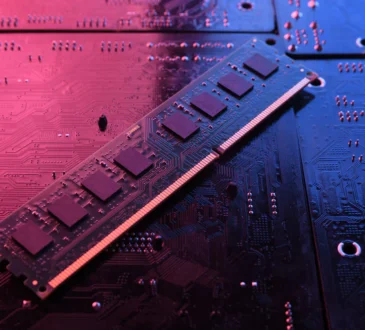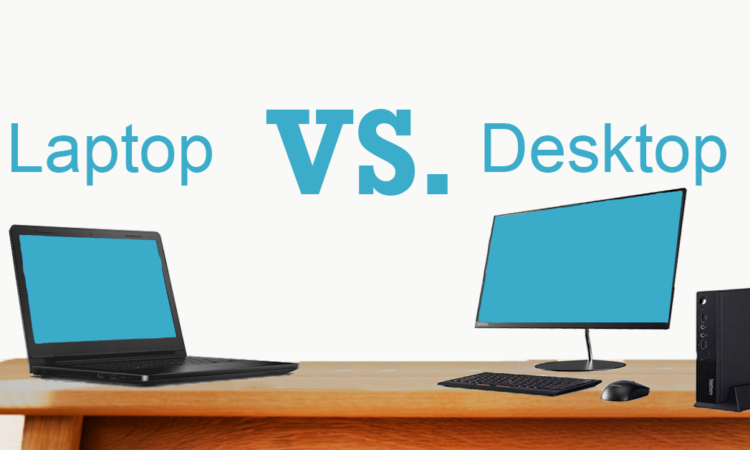
When it comes to buying a new computer, one of the first decisions you’ll face is whether to choose a laptop or a desktop. In 2025, the lines between the two have blurred even further, with laptops becoming more powerful and desktops offering more flexibility than ever. Your choice ultimately depends on your needs, lifestyle, and preferences. To help you make an informed decision, let’s explore the key differences, pros, and cons of laptops and desktops, so you can choose the right one for you.
1. Portability: Laptop Wins for On-the-Go Convenience
Laptop
The primary advantage of laptops is their portability. Whether you’re a student, professional, or traveler, the ability to take your computer with you on the go is a huge benefit. Laptops are compact, lightweight, and have a built-in battery that allows you to work, study, or entertain yourself from virtually anywhere.
Desktop
Desktops, on the other hand, are stationary. They’re designed to stay in one location and are typically heavier and bulkier than laptops. While you can move them, it’s not practical or easy to do so on a regular basis.
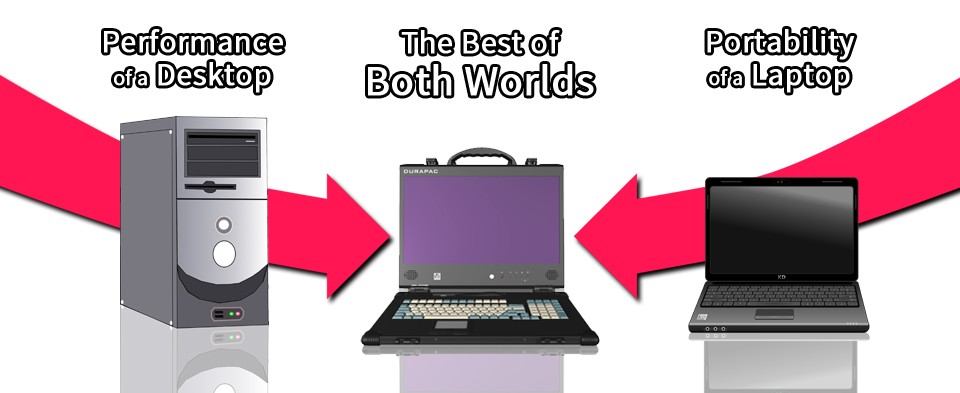
Verdict:
If you need flexibility and plan to take your computer on the go frequently, a laptop is the obvious choice. For those who work from home or in a fixed location, desktops are an option that can offer more power for your buck.
2. Performance: Desktops Lead for Power and Customization
Laptop
Laptops have come a long way in terms of performance, and high-end models now offer great processing power, plenty of RAM, and good graphics capabilities. However, they still have limitations when it comes to cooling and the ability to upgrade components. While premium laptops for gaming, video editing, and other heavy tasks are available, their performance might still fall behind a similarly priced desktop.
Desktop
Desktops have an edge when it comes to raw power and customization. A desktop typically has more powerful CPUs, GPUs, and better cooling systems, which allow for more intensive tasks like gaming, 3D rendering, or video editing. Additionally, desktops can be easily upgraded with new components like additional RAM, a better graphics card, or a larger storage drive.
Verdict:
If you require top-tier performance for tasks like gaming, content creation, or software development, a desktop is the better option. However, if you don’t need supercharged performance and prioritize portability, a laptop with high-end specs can still serve you well.
3. Space and Setup: Laptops Win for Minimalism
Laptop
One of the most significant advantages of a laptop is the minimal space requirement. It combines everything in one device: screen, keyboard, trackpad, and all the internal components. If you have limited desk space or work in various environments, a laptop allows you to work with minimal setup. You can easily tuck it away when not in use.
Desktop
Desktops require much more space due to the separate monitor, keyboard, and other peripherals (such as a mouse, speakers, and external hard drives). While you do get more screen real estate and a customizable setup, it’s not as convenient for those with limited space or who need to take their work outside the home.

Verdict:
If you’re tight on space or need to keep your workspace minimal and clutter-free, a laptop is the clear winner. Desktops are more suited to people who have a dedicated workspace and value customization.
4. Longevity and Upgradability: Desktops for Customization
Laptop
Laptops tend to have a fixed configuration, which means that you can’t easily upgrade components like the CPU, GPU, or even RAM (on many models). Over time, as software demands increase, you might find yourself limited by the hardware in your laptop. Although some high-end laptops allow for RAM and storage upgrades, most components are not as customizable as those in a desktop.
Desktop
Desktops are highly customizable and upgradable. You can swap out components as technology advances, allowing you to extend the lifespan of your system without having to buy an entirely new computer. This is especially beneficial for gamers, content creators, or anyone who needs the most up-to-date hardware.
Verdict:
If you’re looking for a computer that will grow with you over time and allow you to upgrade components as needed, a desktop is the better choice. Laptops are more suitable for users who need an all-in-one solution without worrying about upgrades.
5. Price: Laptops for Budget-Friendly Options
Laptop
Laptops can be more expensive for the same level of performance, especially in high-end models. However, there is a wider range of budget laptops available, and entry-level models are great for basic tasks such as browsing the web, using office applications, and watching videos. The portability factor can make a laptop a great value, even at a higher price point.
Desktop
Desktops generally offer better value for your money, especially when it comes to performance. You can often get more power for less money with a desktop compared to a laptop. Plus, if you already have a monitor, keyboard, and mouse, you can further save on additional costs.
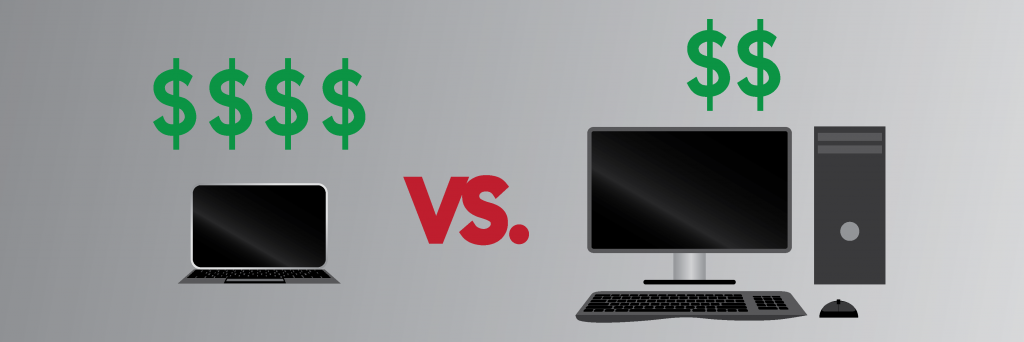
Verdict:
If you’re on a budget and don’t mind giving up portability, desktops typically offer better performance for the price. For people who need mobility and are willing to pay a bit more, a laptop is the better option.
6. Battery Life: Laptops for Power on the Go
Laptop
Battery life is one of the key selling points of a laptop. In 2025, many laptops are designed to run for 8-12 hours or more on a single charge, making them perfect for working or studying on the go. This is a major benefit if you often find yourself working in places without access to power outlets.
Desktop
Desktops require a constant power source and don’t come with a built-in battery, meaning they can only function when plugged into an outlet.
Verdict:
If you need the ability to work unplugged or travel frequently, a laptop is the better choice. For home or office-based work, a desktop is more than sufficient when plugged into a power source.
7. Design and Aesthetics: Laptops for Sleek and Portable Style
Laptop
Laptops are designed for mobility, and in 2025, the trend is to create ultra-thin, stylish, and lightweight devices. Many laptops come in a variety of finishes, colors, and designs that appeal to users who care about aesthetics and portability.
Desktop
Desktops, especially those designed for performance, can be bulkier and less visually appealing than their portable counterparts. However, some high-end gaming desktops and custom-built PCs offer sleek designs with customizable lighting and other features to make them more visually attractive.
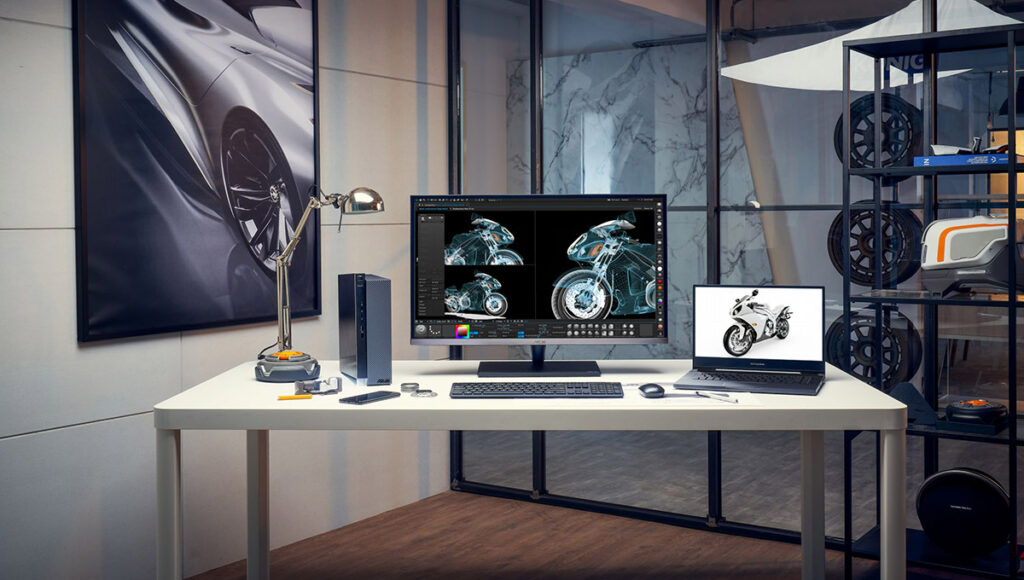
Verdict:
If you care about sleek designs and portability, a laptop is the clear choice. Desktops are better for those who prioritize power and are willing to trade off portability and aesthetics for a more functional setup.
Conclusion: Which One Should You Choose in 2025?
Ultimately, the decision between a laptop and a desktop in 2025 comes down to how you plan to use your computer.
- Go for a laptop if you need portability, battery life, and a compact, all-in-one solution for basic to moderate tasks.
- Choose a desktop if you need powerful performance, easy upgradability, and a more customized setup for tasks like gaming, video editing, or software development.
Each option has its pros and cons, and understanding your specific needs and work habits will guide you toward the best choice. Whether you need a powerhouse for work or a portable device for convenience, both laptops and desktops have evolved to meet the needs of modern users in 2025.

